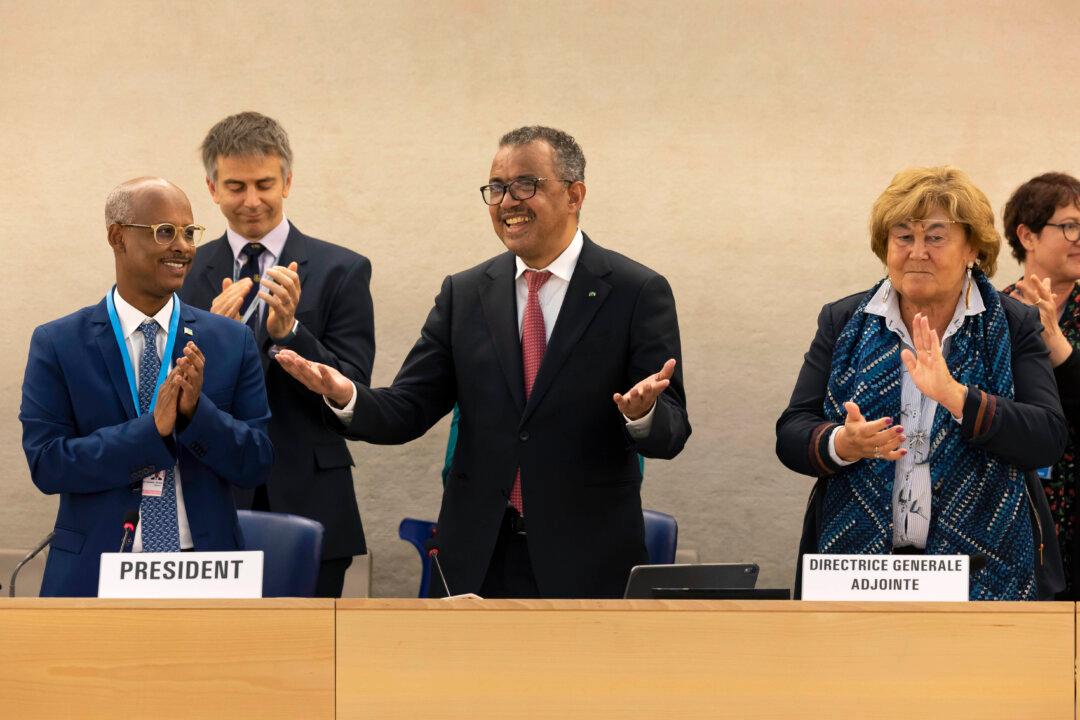LONDON—WHO Director-General Tedros Adhanom Ghebreyesus was reappointed to a second five-year term on Tuesday by the U.N. health agency’s member countries.
No other candidate challenged Tedros for the post.

LONDON—WHO Director-General Tedros Adhanom Ghebreyesus was reappointed to a second five-year term on Tuesday by the U.N. health agency’s member countries.
No other candidate challenged Tedros for the post.